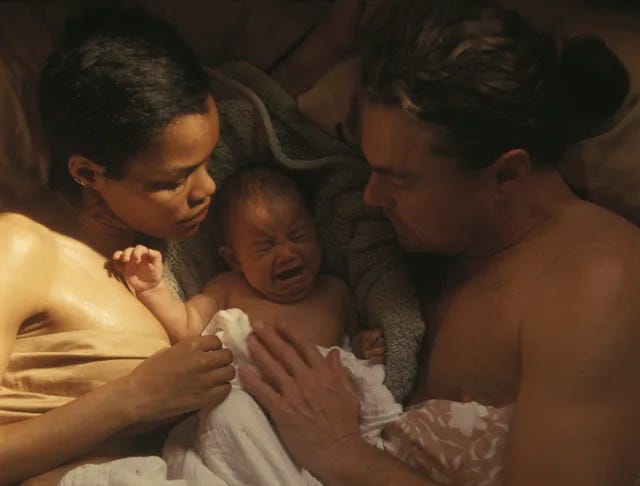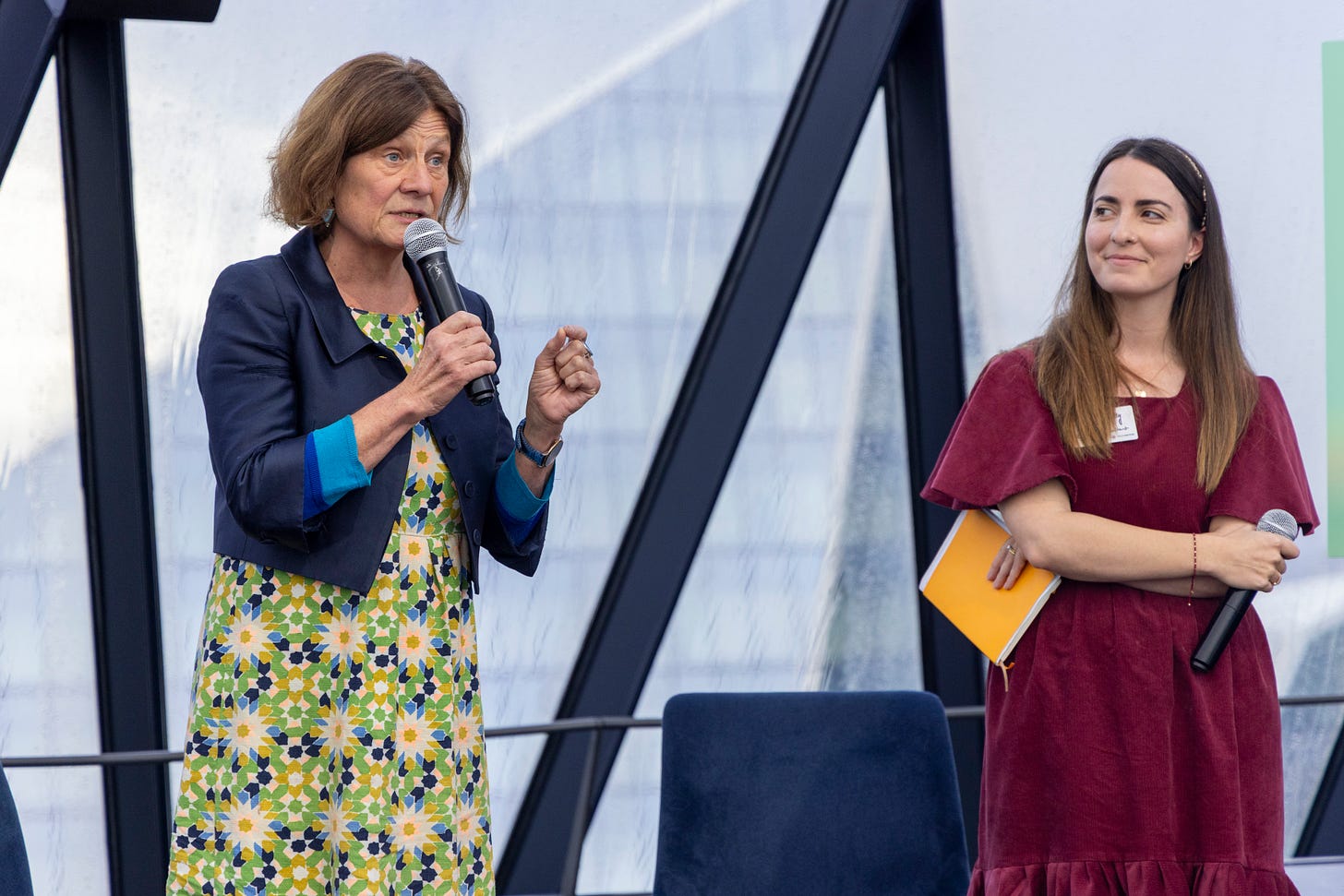One Battle After Another
revolutionary love is hard to kill
On Saturday I managed to escape leave my poorly baby with his Dad for a couple of hours and see One Battle After Another, the new Paul Thomas Anderson film. I was careful not to read any reviews before I sat down in the cinema, as I’d sensed from the fairly unhinged trailer that this wasn’t the kind of movie you wanted explained before you saw it for yourself. I was right! So I’ll be careful to avoid overt spoilers in this brief review; I’ll just explain how it made me feel instead.
The plot is fairly mad—but so, ahem, is our world right now. And I think it’s largely thanks to the bonkersness of real life that One Battle After Another feels surprisingly believable. In brief: single dad Bob Ferguson, played by Leonardo DiCaprio, spent some of his youth wiring up IED’s for the French 75, a revolutionary movement which seeks to liberate falsely imprisoned migrants and wreak havoc on an authoritarian government. After starting a family with his girlfriend and fellow revolutionary Perfidia Beverley Hills (Teyana Taylor), circumstances force the family to separate and go into hiding. In the second half of the film, we witness Bob (now a paranoid stoner) and his daughter Charlene (Chase Infiniti) as they confront an old nemesis intent on their destruction.
Perhaps the first thing to say about this film is just how prescient and of the moment it feels, despite being based on Vineland, a novel by Thomas Pynchon which is now over thirty years old. The opening scenes show migrants rounded up in pens at some sort of border detention centre, and elsewhere the film’s imagery feels as if it were lifted straight from the lens of a Tiktokker chronicling ICE raids. The exhaustion and relentlessness of life as an undocumented migrant in America becomes a recurring motif without being centre stage. During one scene where Bob seeks out help from his daughter’s karate instructor (the brilliant Benicio del Toro who is just SUPERB), we see migrant families being shuttled around a building in order to avoid detection by the feds. The unpredictability and brutality of life for those who hope to make America their home is an unspoken reality of the film.
One Battle After Another draws fast and loose on a plethora of genres, but perhaps one framing that hasn’t been picked up in other reviews is that of the generational saga. Here is a story about how revolutionaries try (and fail) to have a normal family life, and how the battles they think they can solve within their lifetimes actually require the efforts of multiple generations. At one point Perfidia Beverley Hills wonders if her daughter will try to change the world like she has, and whether or not she will be successful.
Being a parent often feels like a distraction from the ‘important work’ of political activism and furthering progressive causes. But I think one of the film’s most powerful subtexts is to recognise the revolutionary power of the family unit itself, in whatever configuration it might take. Some of us won’t live to see the world we envision realised. But we can take comfort in the fact that our children might.
Perhaps that’s partly what Martin Luther King was getting at in his most famous speech:
‘I have a dream that my four little children will one day live in a nation where they will not be judged by the color of their skin but by the content of their character. I have a dream today.’
He had that dream, but we all know that he didn’t live long enough to see it manifested.
I found this to be a really brilliant, humane film, which explores both the limits and extraordinary capacities of people to pursue a love which extends beyond their own biological and political realities. In drawing on the full gamut of human emotion it does what the very best films do, revealing truths through the absurd and acute drama of life.
Thanks for reading! The Murmuration is a newsletter covering culture, politics and collective liberation. It’s written by me, Grace Pengelly, a writer and editor living in Somerset, England. 90% of my writing is available for free, but I do invite regular readers to support this work if they are able by becoming a paid supporter from £3.25 just per month. (n.b. I’ve recently been made aware that Apple inflates subscription prices if you subscribe within their app, so the cheapest way to support my work is via your browser!).
→ London-based readers. On Sunday I’ll be giving the talk at St Lukes, West Holloway. I’ll be talking about Naming Things, Genesis and The Long Form by Kate Briggs. Maybe see you there.
→ On Monday I had the pleasure of speaking with Harriet Lamb, CEO of the Green Party at the Climate Leaders Forum. Here’s a photo of me looking admiringly at Harriet.
You might have missed:
Thanks everyone for your feedback on the *rejuvenated* Golden Hour. I’ve loved hearing what went right for you over the past week. The next edition will be in your inboxes at 3pm this Sunday.
#048: Golden Hour
Hello, Welcome to the new-look Golden Hour, I hope you’ve had a good weekend so far.






Always useful and enlivening to read your work/play .Thank you.
I sent you something and hope it arrived safely .sox